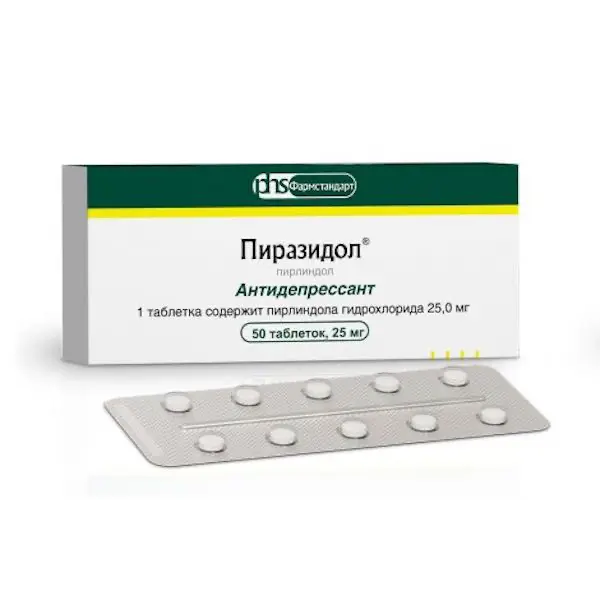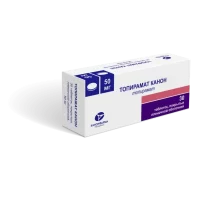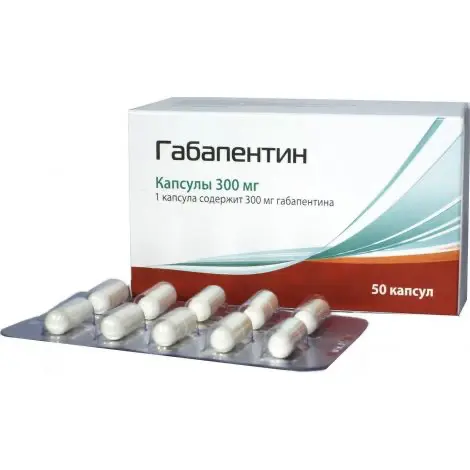Description
Razagilin-Medisorb Pharmacodynamics
Antiparkinsonian drug, monoamine oxidase inhibitor (MAO). Razagiline is a selective irreversible inhibitor of MAO type B, the enzyme that determines 80% of the MAO activity in the brain and dopamine metabolism. Razagiline is 30-80 times more active against type B MAOIs than against type A MAOIs.
As a result of the drug’s inhibitory effect on type B MAOIs in the central nervous system (CNS), dopamine levels are increased and formation of toxic free radicals, excessive formation of which is observed in Parkinson’s disease, is reduced. Razagiline also has a neuroprotective effect.
Unlike non-selective MAO inhibitors, in therapeutic doses the drug does not block metabolism of biogenic amines (e.g., tyramine) that come with food, so it does not cause tyramine-dependent hypertension syndrome (“cheese effect”).
Indications
Treatment of Parkinson’s disease (as monotherapy or combined therapy with levodopa drugs)
Contraindications
– Hypersensitivity to rasagiline and/or any other drug component;
– concomitant use with other MAO inhibitors (including drugs and food supplements containing St. John’s wort), pethidine. A break between discontinuation of Rasagilin and initiation of therapy with these drugs should be at least 14 days.
– moderate to severe hepatic insufficiency (classes B and C of the Child-Pugh scale);
– children under 18 years of age (no data on efficacy and safety).
Dosage and administration method.
- It is taken orally, regardless of meals, in a dose of 1 mg once a day, both for monotherapy and in combination with levodopa.
- Elderly patients
- No dose adjustment is required in elderly patients.
- Patients with impaired hepatic function
- The use of rasagiline in patients with moderate to severe hepatic insufficiency is contraindicated.
- Caution should be observed when using Rasagilin in patients with mild hepatic insufficiency. If during treatment with Rasagilin progression of hepatic insufficiency to moderate degree is noted, the drug should be discontinued.
- Patients with renal insufficiency
- No dosage adjustment is required.





